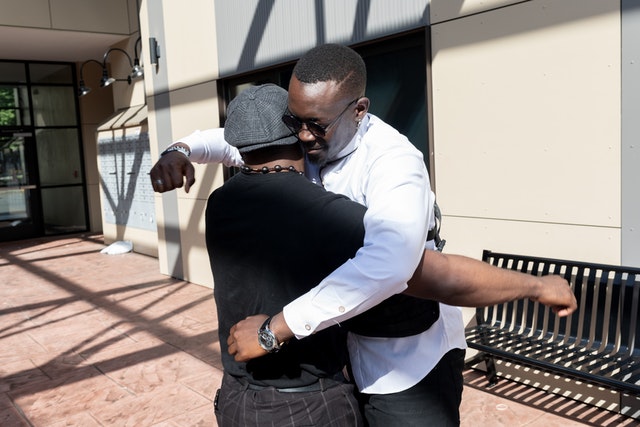Lesson 45 –
Psalm 78:1-7
1 Give ear, O my people, to my teaching;
incline your ears to the words of my mouth.
2 I will open my mouth in a parable;
I will utter dark sayings from of old,
3 things that we have heard and known,
that our ancestors have told us.
4 We will not hide them from their children;
we will tell to the coming generation
the glorious deeds of the Lord, and his might,
and the wonders that he has done.
5 He established a decree in Jacob,
and appointed a law in Israel,
which he commanded our ancestors
to teach to their children;
6 that the next generation might know them,
the children yet unborn,
and rise up and tell them to their children,
7 so that they should set their hope in God,
and not forget the works of God,
but keep his commandments;
Background
When you read the rest of this Psalm, you will see a historical account of the people’s Story. There are references to the parting of the sea, the plagues set out to Egypt, and a chilling indictment of the evil set out by harsh leaders. In your own devotional period, consider the purpose for this passage in this psalm. Why would people rehearse the story of a land they have since fled? Can you think of any parallels in your own life?
Today’s lesson will focus on honoring intergenerational storytelling.
Read the scripture out loud together.
Discuss with someone in your home. What kinds of activities happen at a family reunion/family get together?
What’s happening during this passage?
The writer of this passage calls to the people. “Give me your ears, listen to this teaching!” This writer will “utter dark sayings of old, things we have heard and known, that our ancestors told us.” These things will not be “hidden” from the children. Coming generations will learn from the decrees and laws taught to the ancestors. And each generation will come to “rise up” and tell these stories to their children. Throughout the passage, the words “ancestors” and “children” feature prominently. The underlying theme of the passage is continuity.
What is the point of telling the story?
In the words of this writer, the point of telling the story isn’t just for rote memorization purposes. Telling the story is more than reciting Black History Month facts. For the writer, the purpose of uttering words from the ancestors is that future generations will “rise up and tell them to their children.” All done, of course, for the aim that they might “set their hope in God, and not forge the works of God, but keep [the] commandments.” This passage gets sticky, because sometimes people use this idea to suggest that God demands a particular set of behaviors in order to be pleased.
So what kind of commandments can we focus on? Throughout the Bible, God gives commandments to the community. God reminds the people that they should take care of the widow, orphan and stranger. God reminds the people that they should make provisions for foreigners. God tells us that we should share the bounty among us, that we should treat others the ways we want to be treated, and that we should be examples of God’s love and grace in the world. God does not obsess the ways humans do about race, gender, sexuality, clothing choices, family structure, occupation, ability and mental health challenges. God consistently chooses unlikely characters to do God’s work.
What happens when the story gets difficult?
It’s not always sunshine and roses. There are often parts of our history that are painful to remember. And yet, we must find some way to learn from the blueprints of the past. We cannot move forward if we do not adequately name what has happened. Doing so is a dance, however. How do we discern the limits of what our spirits can take? How do we decide how much trauma is “too much,” and how do we decide to put our heads in the sand? Dr. Angela Sims, the first woman president of Colgate Rochester Crozer Divinity School, wrote a book called “Lynched: The Power of Memory in a Culture of Terror.” In this book, she argues that many survivors of lynching culture are simply too terrorized and traumatized to speak on its horrors. But silence does not mean it never happened. Sadly, many history books (and political movements) assume that if communities are silent about something, they “got over it.” Or it wasn’t “that serious.” But consider this– so many people are so terrorized that they cannot speak to the violences they’ve witnessed. Maybe you can empathize.
What good can come from rehearsing the story?
Even when the story is difficult, sitting in a safe place to retell “how we made it over” is a sacred act. We do this on Watch Night when we make room for people to tell their testimonies. It helps us reflect on the past year, thank God for seeing us through “dangers seen and unseen,” and set intentions for the next year. Rehearsing the story can build vulnerability and community. We rehearse stories when we talk about Concord’s History on Church Anniversaries, but we also rehearse stories when we sit in the sanctuary and spend time with each other after service on a typical Sunday. Spending sacred time with each other, whether in service or not, can make relationships stronger. How else will we get to know each other’s gifts and talents if we do not come together to share them?
Think about some people in your families who hold the stories. Who are those people? Write down their names, and if they are still living, make an attempt to call them this week.
What questions do you still have of this scripture? How will you commit to journeying with this text this week?
 Connection to Today’s World
Connection to Today’s World
According to all credible scientists, the way industrialized nations have exploited the Earth is wreaking havoc on the planet. Winter comes later and is more extreme, hurricane season is more active than it has ever been, and entire species of animals are in danger of being extinct due to environmental forces. Of course, the average person is less responsible for climate change than big corporations and military forces.
And still, everyday people are using what they have to teach other everyday people about eco-friendly options. Kim Arango and Aliya Nelson founded Evergreen Baby. They are friends and mothers to young boys. They both lamented together that they could not find a hub online for eco-friendly baby products and gear made by Black-owned companies. In their own words, they say, “We believe that parents should not have to go on a treasure hunt to find baby products that are eco-friendly, affordably priced and crafted by Black Artisans. We wanted to see our culture and personal values reflected in the venues we shop for our little ones. So we got to work and created an online marketplace that does just that!”
We celebrate their efforts as we read about “the works of God.” We should tell stories and do all we can to be responsible stewards of this Earth. We only have one planet! While it takes more than individual personal choices to make systemic change possible, imagine the kinds of leaders these children will grow up to be knowing that their moms built something sustainable on their behalf!
For more information about their shop and their efforts, head to https://www.evergreen.baby/
Journal: What story do you want to record for future generations?
Closing: Sing/watch “Let Mount Zion Rejoice,” sung in this clip by Chicago’s First Church of Deliverance.
Prayer:
Dear God,
You are the God of our ancestors, “whose almighty hand leads forth in beauty all the starry band. Of shining worlds in splendor through the skies, our grateful songs before Thy throne arise.”
We know that you are not a God who needs to be oriented to our situation. You have seen our ancestors through. You have the notes and the outlines.
We ask your mercy and your comfort in the coming days, as always. Under the restrictions of social distancing, we need your creative power to inspire us. Help us, dear Lord, to find new ways to gather, and new ways to tell the stories. Change our minds when we want to blame things on “generational differences.” Give us the patience and the clarity to hear how you’ve brought us through a mighty long way “down through the years.” In Jesus’ name we pray, Amen.
Works Cited:
http://www.workingpreacher.org/preaching.aspx?commentary_id=358
https://www.baylorpress.com/9781481306041/lynched





